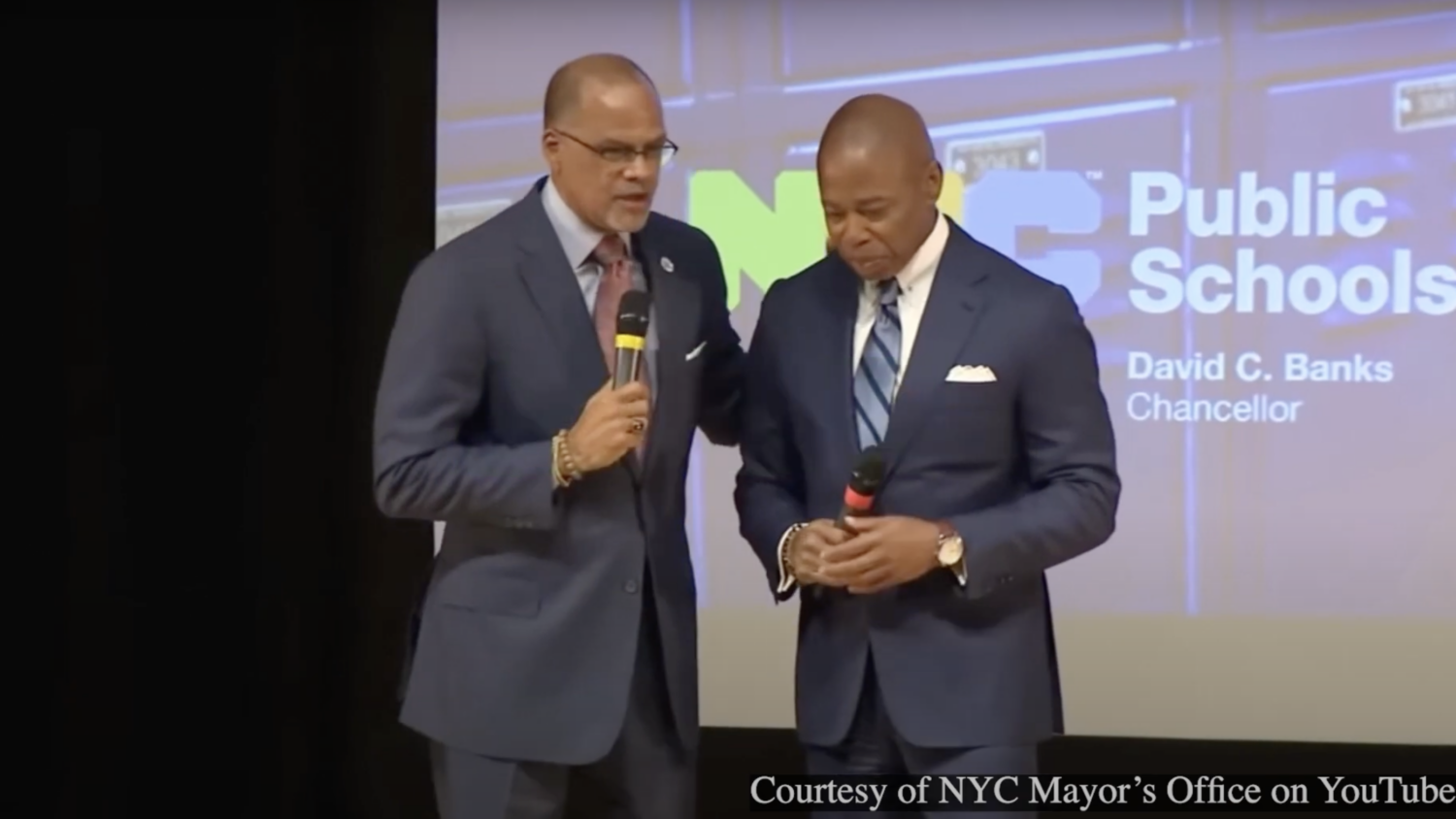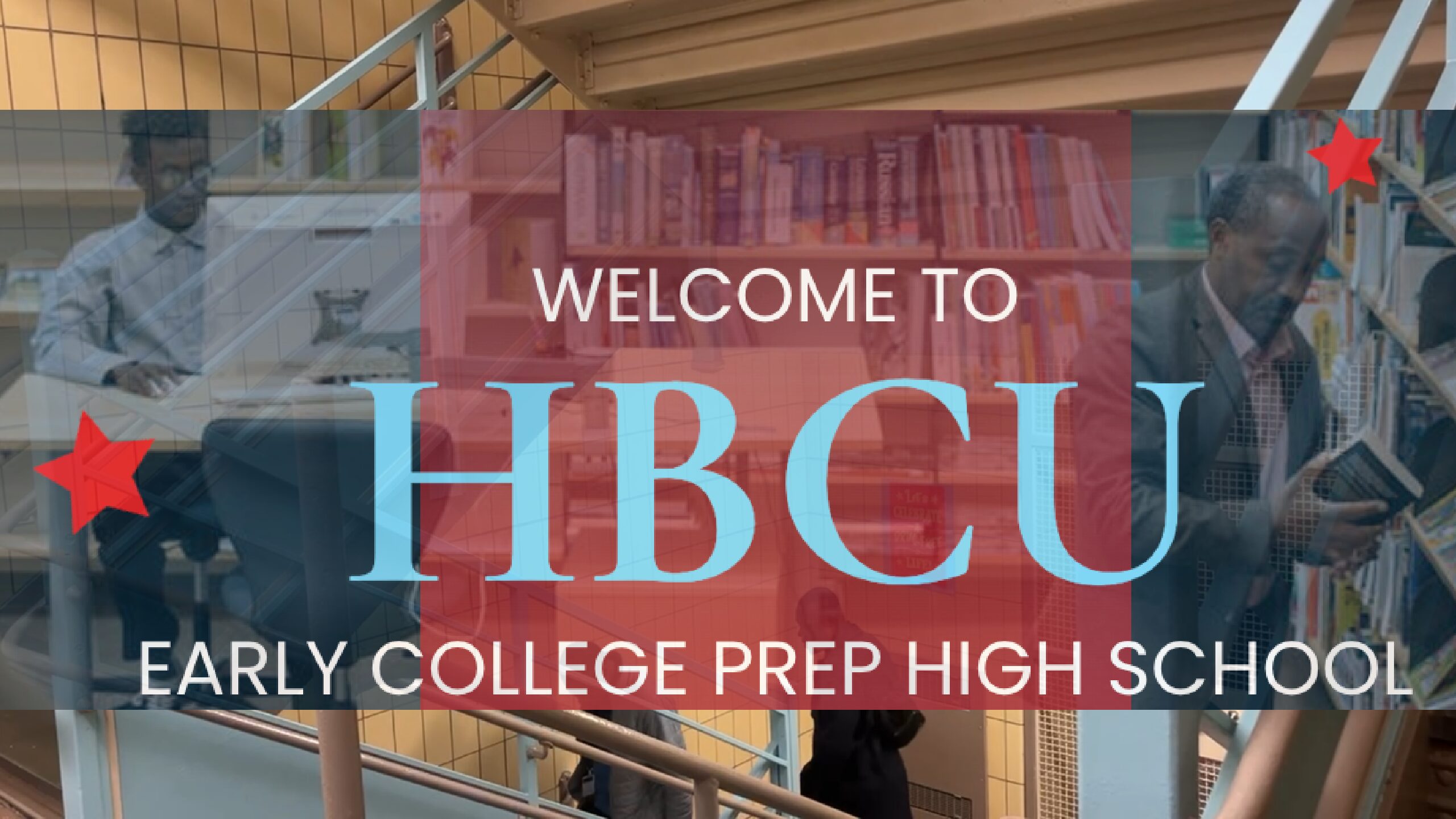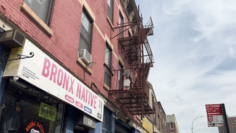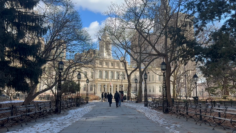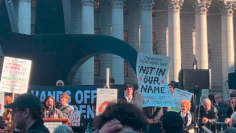What is Mayoral Control?
“I have no interest in serving as a chancellor in a system where you don’t really have the authority to make real decisions,” New York City Chancellor David Banks said during a recent press conference. “I have no interest in that whatsoever.”
Banks oversees the largest public school system in the nation. Any talk of stepping down if the state legislature doesn’t renew mayoral control is sure to grab the spotlight. But what exactly is this decades-old law?
Until 2002 New York City’s school system was run by the Board of Education. It had seven members: two that were appointed by the mayor, and one for each of the borough presidents. They managed the city’s high schools, decided what policies schools should follow, and picked the school chancellor.
For the day-to-day decisions at K-8 schools, the Board of Ed relied on 32 locally elected community school boards. But corruption was rampant in some of the school boards, and the Board of Ed didn’t have the power to control them all.
“You didn’t even have a shot at being a principal in a particular district unless the head of the community board, you were close to them, or you were prepared to pay money for your position,” Banks said. “That’s not made up stuff, that was real, that was happening.”
So the entire system was scrapped in favor of something new: mayoral control. Under the new system, the community school boards — now the community education councils — became advisors rather than managers.
The Board of Education became the Panel for Education Policy, or PEP. They grew from 7 to 23, and continued to decide on school policy, but they no longer chose the school chancellor. That’s something the mayor does, in addition to appointing 13 members of the PEP.
So if the mayor appoints people that are in lockstep with his agenda, he can decide how schools are run. And that’s the point of mayoral control, to have one person be responsible if things go wrong. But it’s not exactly a foolproof plan.
“Many of the problems that we have are because the system has been even more politicized than it was before because the mayor uses it as a political device for his re-election,” said David Bloomfield, an education professor at Brooklyn College and the CUNY Graduate Center.
Bloomfield believes people have been getting more frustrated with mayoral control over the years. So, will the state legislature decide to change what mayoral control looks like, or even revoke it entirely? Lawmakers have till June 30 to decide.
But one thing that won’t change is the mayor’s power over how much funding schools get. So those education budget cuts that people have been complaining about? They’re here to stay, unless the mayor himself decides otherwise.
Vincent Jiang was born and raised in New York City, moving between Queens, Brooklyn, and Manhattan in his childhood. He’s written about politics, technology, and climate issues, and is covering education for City Newsroom.




